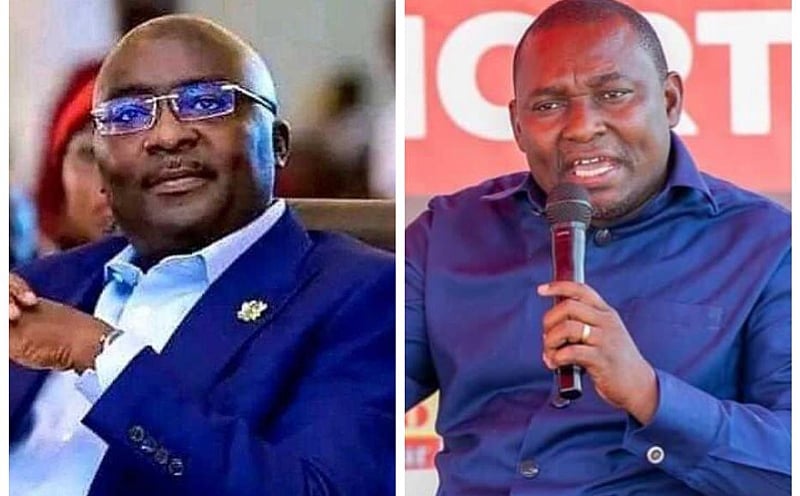The Movement for Change, a Ghanaian political advocacy group, has formally petitioned the Office of the Special Prosecutor (OSP) to initiate a comprehensive investigation into the financial dealings of former Vice President Dr. Mahamudu Bawumia. The petition centers on allegations of corruption, illicit enrichment, and violations of Ghana’s political financing laws, stemming from recent public pronouncements made by Dr. Bawumia during his campaign for the New Patriotic Party (NPP) flagbearership.
Dr. Bawumia’s statements, in which he claimed to have personally financed the purchase of over 300 pickup trucks for the NPP and contributed significantly to the party’s 2024 presidential campaign, have triggered concerns regarding the source of his wealth and potential misuse of public office during his tenure as Vice President. The petitioners, Solomon Owusu, Andrew Appiah-Danquah, and Edwin Godwin Buckman, argue that the sheer scale of these financial contributions raises serious questions about their legitimacy and necessitates a thorough investigation by the OSP. They contend that Dr. Bawumia’s financial capacity, seemingly exceeding the expected means of a public servant, warrants scrutiny under the existing anti-corruption framework.
The petition, submitted on September 15th to the OSP’s office in Accra, invokes various legal provisions to support their request for an investigation. Citing the Office of the Special Prosecutor Act, 2017 (Act 959), the Political Parties Act, 2000 (Act 574), and the Anti-Money Laundering Act, 2008 (Act 749), the petitioners emphasize the legal imperative to investigate potential financial impropriety, particularly by politically exposed persons. These laws are designed to ensure transparency and accountability in public life, combating corruption and illicit financial activities that undermine democratic governance.
The petitioners highlight the significance of Dr. Bawumia’s status as a former Vice President and a prominent political figure, arguing that his ability to amass such substantial funds necessitates a probe into the possibility of abuse of influence, conflicts of interest, or the diversion of public resources for personal political gain. They assert that the declared financial contributions far exceed the typical income and assets of a public official, raising a “reasonable suspicion” of unlawful activities. This suspicion, they argue, warrants a full investigation by the OSP to ascertain the legality and propriety of Dr. Bawumia’s financial dealings.
The petition emphasizes the importance of upholding the integrity of Ghana’s political financing laws, designed to prevent undue influence by wealthy individuals and ensure a level playing field for all political actors. The petitioners argue that Dr. Bawumia’s boasts, if left unchecked, could set a dangerous precedent, normalizing potentially corrupt practices and eroding public trust in the political process. They stress the OSP’s role as an independent investigative body in ensuring accountability and deterring future financial misconduct within the political sphere.
The Movement for Change’s petition to the OSP represents a significant development in Ghana’s ongoing efforts to combat corruption and enforce transparency in political financing. The outcome of the OSP’s investigation will be closely watched, as it could have far-reaching implications for the country’s political landscape and the upcoming 2024 elections. The case highlights the increasing scrutiny placed on the financial dealings of political figures, with civil society organizations playing a crucial role in demanding accountability and upholding the rule of law. The OSP’s response to this petition will signal its commitment to investigating potentially corrupt practices and enforcing the legal safeguards designed to protect the integrity of Ghana’s democratic processes.


